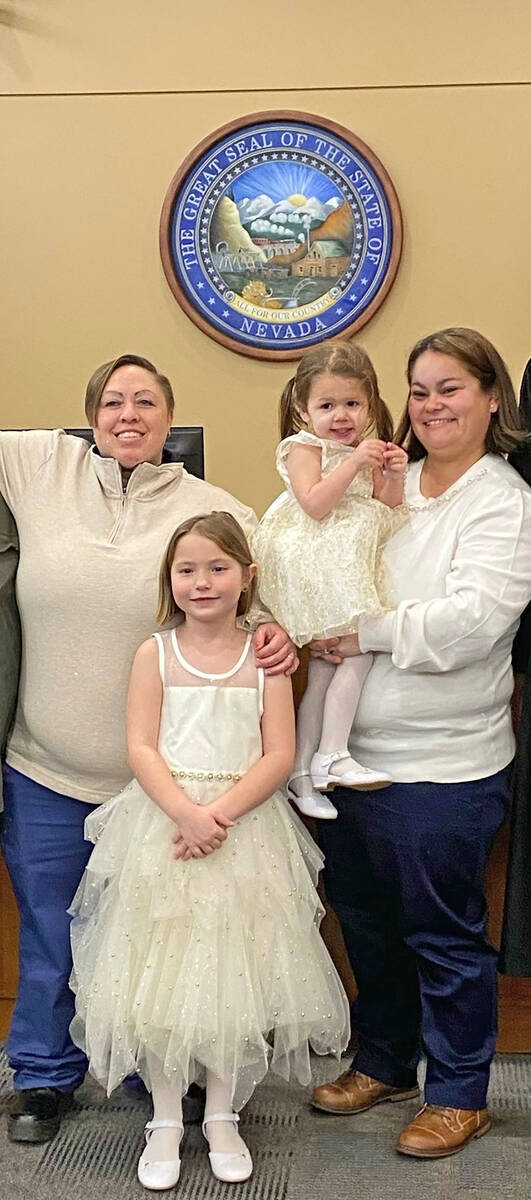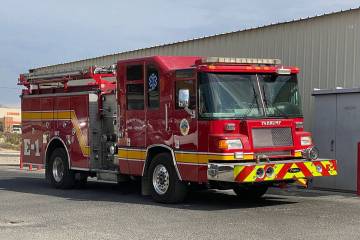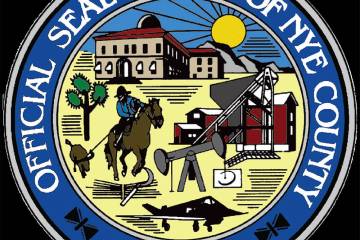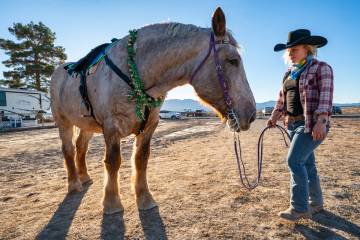LGBTQ foster recruitment a focus for Pride Month
If you want to make a real difference in the life of children in rural Nevada, become a foster care provider.
It’s a message that the Nevada Division of Child and Family Services is constantly pushing and for National Pride Month, the state agency is focusing its recruitment efforts on members of the LGBTQ community.
“June is National Pride Month and over at DCFS, we want to take the time to remind the community about the need for LGBTQ foster families. We have a few LGBTQ fosters within rural Nevada who do great work but we can, of course, always use more,” DCFS Rural Foster Care Recruiter Shelby Riley told the Pahrump Valley Times. “For LGBTQ teenagers, it can really go a long way when they are able to be matched with a home that is consistent with their identity too, so that they are able to relate and find some commonality in that home. And as an LGBTQ foster parent, if you are able to take in an LGBTQ teen, you could be a massive advocate and liaison for that youth.”
Riley stressed that foster care providers can come from all walks of life, no matter their background or familial status.
“There are so many makeups of what a great foster home looks like. You can be single, you can be married, you can be in a domestic partnership, you can be of a multi-generational home where you have your parents living at home or your adult children living at home. We definitely don’t want people to think that you need to fit into a neat little box of what someone might think a family is supposed to look like. Families come in all kinds and we really want to embrace that diversity, inclusivity and culture for all of our youth,” Riley explained.
One such foster home is with the Rego-Giordanella family. Sylvia Rego and her wife Christina Giordanella are a same-sex couple who have been fostering for many years and they offered to share a bit about their experience in an interview with the Times.
“Christina’s cousins are adopted, they did a kinship adoption and ever since then, she has always wanted to adopt. One day around the time that we started discussing having children, I had come across an article that was talking about foster care and recruitment. Well, I called the number and here we are, nine years later!” Rego detailed.
Throughout the years, Rego and Giordanella have fostered children with a range of ages and personalities and they have developed strong bonds with many, including biological families of children they have fostered. To this day, Rego said several of those foster youth and their families remain close to her own and the decision to become foster care providers is one the couple have never regretted.
“You have support from the state and you also have support in that you have a child that has a family, so they have visits and you can build a connection with the biological family, too. I don’t look at having a foster child any different than a biological child, except for the fact that they have this extended part of them, their biological family, that comes with them,” Regio remarked.
When it comes to foster youth who are part of the LGBTQ community, Rego said she believes education and awareness are the key to ensuring these youth are not overlooked or worse, discriminated against.
“Depending on their experience with it, some people may be hesitant because they don’t necessarily understand a child in the LGBTQ community,” Rego said. “I know there is a lot of terminology and it can be difficult to understand. There is some education out there but I really think we need more of that exposure because I think then people wouldn’t be so uncertain about it. Giving these kids the support, trying to find common ground where you can support them, that’s what is important.”
Nevada law requires mandatory education on LGBTQ subject matter for foster care providers and social workers but still, Riley acknowledged that it can carry a stigma in some cases.
“For foster youth with a history of running away or interactions with juvenile probation, it can be more difficult for them to be accepted for placement. Unfortunately, the same is true for LGBTQ youth,” Riley stated, adding that DCFS is actively working to change both of these realities.
“We want to bring attention to the fact that these are normal things that children go through, even when it comes to juvenile probation,” Riley emphasized. “Sometimes, that is exactly what that teen needs at that time, someone to be a good role model and influence for them.”
As it stands today, there are approximately 60 foster families throughout the 15 counties that make up rural Nevada but on average, there are around 400 children in the foster care system at any given time, numbers that simply don’t match.
“And something a lot of people may not be aware of is, we’re not able to utilize fosters in Las Vegas or Washoe County, because we are a separate agency. We work exclusively within rural Nevada and if, for example, a child in Pahrump needs to be placed in care and there are no homes available there, they will likely end up somewhere quite far away, like Carson City or Fallon or Elko,” Riley noted.
This then removes the child from their home town, perpetuating the traumatic experience the child is already undergoing and leading to unfavorable statistics.
“We see poor outcomes in pretty much everything when a child is removed from their community of origin. We’ll see reunification take place less often. That child is more likely to struggle in school and less likely to graduate. They are more likely to struggle to make friends, more likely to be connected with substance abuse or sex exploitation. Really, every challenge is amplified when a child is away from their community,” she explained. “That’s why having foster care homes in every rural Nevada community is so important.”
DCFS now offers monthly online training sessions for prospective foster care providers. Anyone with questions is encouraged to reach out to Riley at 888-423-2659.
For more information visit RuralNVFosterCare.com
Contact reporter Robin Hebrock at rhebrock@pvtimes.com

















